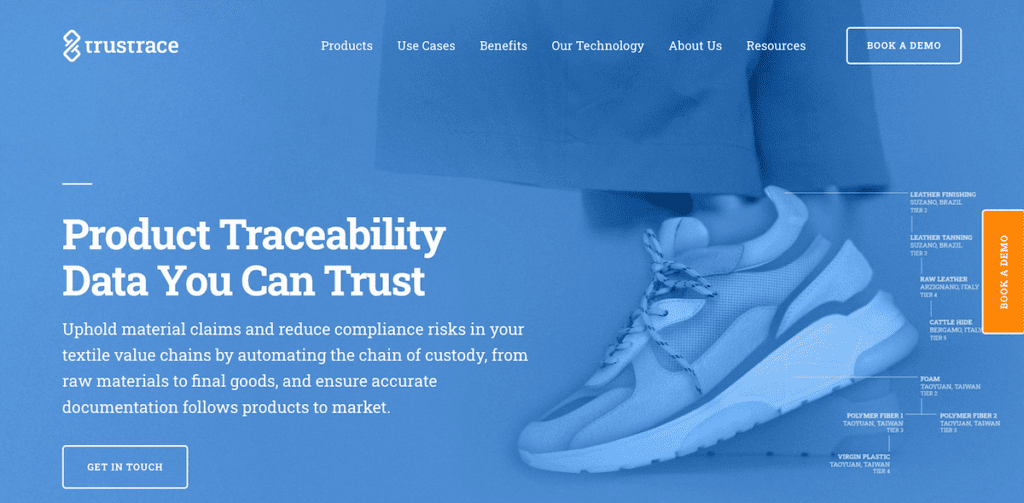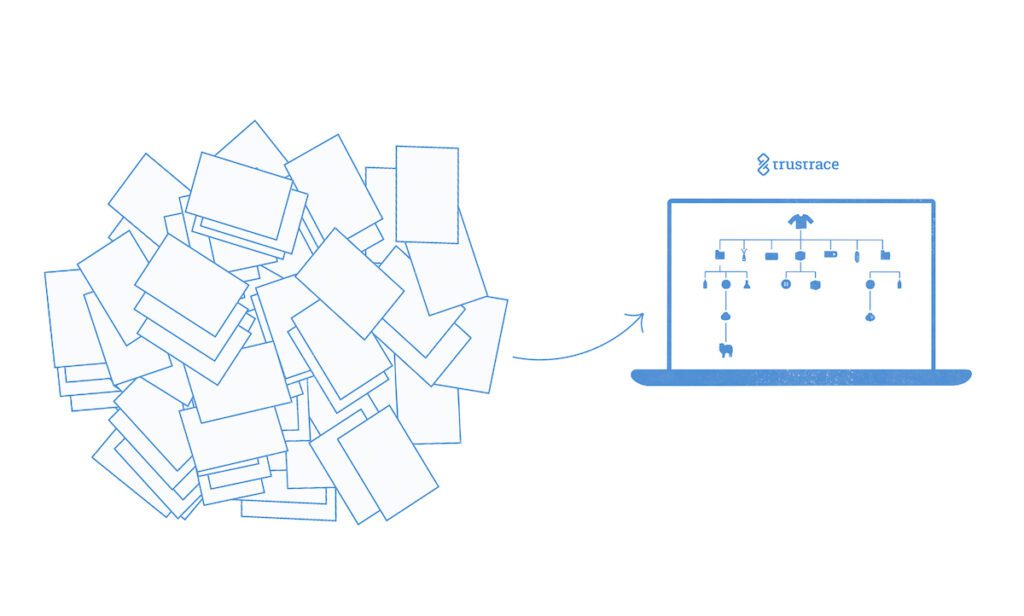In today’s rapidly evolving world, the fashion industry faces mounting pressure to address environmental and social challenges. Recognizing the urgent need for innovation, TrusTrace has created a technology platform that empowers fashion companies to navigate the complexities of their supply chains with a focus on responsibility and sustainability.
TrusTrace goes beyond traditional traceability systems by not only identifying environmental and social challenges risk actors or value chains, but also enabling proactive action to mitigate these risks.
By fostering behavioral change throughout the value chain, TrusTrace paves the way for transformative practices that drive positive impact and pave the path towards a more sustainable future.
Below is an interview with Shameek Ghosh, CEO of TrusTrace
What was the lightbulb moment – origin story of TrusTrace?
The four founders grew up in India and we saw the drastic deterioration of the environment and disastrous impact in the society from the irresponsible fashion & textile production practices.
The tipping point was when Sarva’s (one of the co-founders) ancestral farmland was affected by water pollution from nearby textile hub. The dyes from the factories polluted the river and turned it purple.
This case was one of the many that happened in 2016 – one of the lakes in Bangalore caught fire, the Rana plaza disaster in Dhaka, etc. It became so clear that something needed to change – and we set out to help fundamentally change the status quo.

What is TrusTrace’s mission and vision?
Our vision is a future where all value chains are traceable, circular, and fair. If you look at the fashion industry, there are so many challenges that need to be addressed in terms of environmental impact and social exploitation.
There’s been a call for change for years, but not much has been achieved as production, footprint and social exploitation is still happening. While legislation is coming in to address this, the fact of the matter is still that it’s hard to change what you don’t know is happening – so it has to start with data.
All value chains must be traceable, as that is the only way to get real, validated data about how goods are being produced, so you can really understand their impact.
All value chains must be circular, as this is the only way to ensure that we can keep meet the needs of current and future generations while keeping consumption within the boundaries of our planet.
And all value chains need to be fair, so we ensure that all actors in the supply chain benefit from the relationship. Everyone should be treated fairly, respected, and have the ability to support a healthy livelihood for themselves an their communities.
With that in mind, our mission is to empower companies with the validated data to know, prove and improve the impact of their value chains.
In short, we want to ensure that companies have good quality data that enables them to know where to focus, and to act fast to improve their impact. It also enables companies to collaborate to achieve impact faster.
How does TrusTrace impact lives and/or the environment in a positive way?
We are ’tech for good impact’ platform. TrusTrace helps fashion companies identify the ESG risk actors or value chains and then they can take action to mitigate risk. This way they drive change in behaviour in their value chains.
To illustrate, the fashion brand can have a net zero goal and for them to achieve that they need to reduce scope 3 emissions, which accounts for more than 90% of their emissions.
To tackle Scope 3 emissions, fashion brand needs its suppliers to move to renewable energy. TrusTrace helps the brands to identify the suppliers with high emissions, so they can act to improve their impact, ideally through helping the suppliers adopt renewable energy, or if that is not possible, through moving to other suppliers.

How have you funded the company thus far?
When we started out in 2016, we bootstrapped, but applied and received some grants early on in 2017 and 2018. In 2019 we got our first investors with a seed round, and two year later we did a Series A, so we now have big, institutional investors that help us grow and expand globally.
The series A, which closed in October 2021, raised $6 million growth investment, and was led by Industrifonden and Fairpoint Capital, together with previous investors BackingMinds, and with support from Fashion for Good.








